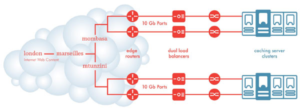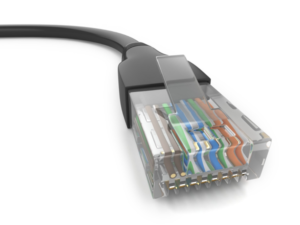It’s tempting to think of the Internet as a single thing – one massive network that connects everyone around the world. It feels that way. You boot up your computer, open the browser of choice, and then use Google (or Bing, or Yahoo) to find the information, business or resources you’re looking for. At no point in this process is there an obvious handoff between different networks. It all happens behind the scenes, and there must be a very wide variety of puzzle pieces in place to make that happen. Three of the most confusing (and often unnoticed or even misused) terms in the Internet world today are IP transit, Ethernet services and carrier resellers. Not sure what those terms actually mean? Let’s take a closer look.
Table of Contents
IP Transit

Let’s start with one of the most crucial elements of Internet connectivity – IP transit. As mentioned, while the Internet seems like one vast network, it’s not. It’s actually a series of different networks all bunched up together. Each network must connect to another to allow information to flow freely. So, one network on the other side of the world must connect to another, and then to another, and then to another, in order for the email you’re sending to actually reach its recipient. This intercommunication and ability to pass data from one network to another is called “transit”. Not all networks allow information to flow from another one, through it, and then on to yet another network, but many do.
Transit is actually the term used to describe when a network agrees to carry traffic from one network to another, or even to multiple networks to which it connects. These are called transit providers, and there are quite a few of them out there. Most operate on a transit fee basis (they charge to provide transfer throughput). Those fees are passed on to the paying company’s customers, and they can vary quite a bit depending on where in the world you’re talking about. Japan has some of the highest transit rates, although Australia tops them. There are plenty of visible examples of IP transit providers out there, with AT&T, Cogent, Sprint and Verizon being a few of the most visible (and most familiar) names.
Transit is a crucial consideration. Without it, there is no Internet. We’d all be tied to local or regional networks with no interconnectivity.
Ethernet Services

Ethernet services are in some ways the opposite of IP transit. These are generally machine to machine connections and are generally private. Ethernet services are also part of broadband access to other networks and offer high-speed connectivity via fiber optic cabling. Many providers offer Ethernet as a Service (EaaS), although they generally form the backbone of private line or virtual private networks.
Note that Ethernet services are not generally available to end-consumers under this particularly name. They are provided to businesses and organizations. There are many benefits to this model that go beyond the speeds capable. For instance, because Ethernet interfaces are used on just about every piece of computer equipment in existence, they are very affordable. This reduces equipment costs and the overall price of the service itself. Finally, most service providers give customers the option of choosing a speed tier or incremental increases to ensure flexibility and scalability.
Carrier Resellers
Most consumers and even businesses today actually work with an ISP that contracts with a carrier reseller. Carriers resellers are defined as the actual service provider, while ISPs package the carrier’s product (Internet connectivity in this case) and re-brand it as their own, then resell it to their own customers.
There are plenty of examples of how this works throughout the telecommunications industry. Think of your local phone service, for instance. Unless you are a direct AT&T customer or buy directly from another carrier, then you’re working with such a supplier. Here’s an example: AT&T owns the phone lines in your town. However, the carrier needs help in marketing and providing customer service. They decide to resell their services to someone else. AT&T leases those lines to another company that rebrands the phone service as its own, and sells it to you. AT&T makes money on leasing its hardware, while the other company makes money from customers. Everyone wins (in most cases).
Another way to think of this is to imagine that the carrier reseller is an auto dealership that allows you to lease a car. You don’t own the car in reality, but for all intents and purposes you are the de facto owner and are responsible for maintenance, fueling it up, keeping it clean and all the rest.
The same situation is true with Internet connectivity. Think of the buyers in this scenario as sort of “virtual” ISPs (Internet service providers). They’re your point of contact, but don’t actually own the backbone of the system. They’re generally responsible for getting your home or business connected to the network, supplying you with routers, and providing technical support and troubleshooting. Most of the companies that own the Internet infrastructure provide these businesses with wholesale pricing, as well as technical support and expert guidance for problems on their end (not issues arising on the client side).
So, there you have it. IP transit is what makes the Internet the Internet, rather than just a collection of separate networks. It’s what allows intercommunication, streaming media and everything else. It also plays a big role in the price paid for Internet service.
Ethernet services offer both businesses and consumers high-speed access, and the ability to create private or virtual private networks. Carrier resellers allow smaller businesses to repackage their technology and deliver it to customers.